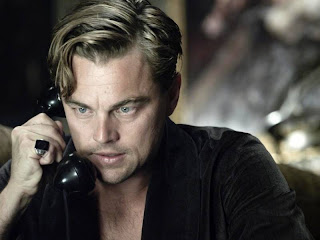Cast:
Leonardo DiCaprio as Jay Gatsby
Tobey Maguire as Nick Carraway
Carey Mulligan as Daisy Buchanan
Isla Fisher as Myrtle Wilson
Elizabeth Debicki as Jordan Baker
Jason Clarke as George Wilson
Amitabh Bachchan as Meyer Wolfsheim
Max Cullen as Owl Eyes
Brendan Maclean as Klipspringer
Jack Thompson as Nick Carraway's Doctor, Walter
Perkins
Gemma Ward as Languid Girl
Callan McAuliffe as Young Jay Gatsby
Gus Murray as Teddy Barton
Stephen James King as Nelson
Director: Baz Luhrmann
The
Great Gatsby is $125 million verson of F
Scott Fitzgerald’s novel – directed by ‘Romeo + Juliet’ and ‘Moulin Rouge’
director Baz Luhrmann – started shooting in Sydney
This
story had happened in America. The young man by the name of Nick Karruey moved
to New York. He had a dream to be rich. He lodged near the lavish mansion of
Jay Gatsby, a mysterious business magnate who held extravagant parties. The
Nick joined this unceasing fun and having made friends with Gatsby. Gatsby was
surprisingly young and rather aloof, in person. Gatsby seemed to take a liking
to Nick and the two became mutual friends.
Jay Gatsby asked Nick to arrange
him a meeting with Daisy. Through Jordan, Nick later learnt that Gatsby had known
Daisy from a romantic encounter in 1917, and was still madly in love with her.
 After
party Gatsby’s car had struck and killed Myrtle, Tom’s lover. Tom told Myrtle’s
husband, George, that Gatsby was the driver of the car. Jay was abruptly shot
and killed by George, who immediately turned the gun on himself.
After
party Gatsby’s car had struck and killed Myrtle, Tom’s lover. Tom told Myrtle’s
husband, George, that Gatsby was the driver of the car. Jay was abruptly shot
and killed by George, who immediately turned the gun on himself.
No one came to the Gatsby’s
funeral. Back in the sanatorium, Nick
finished his memoir and titles it,
"The Great Gatsby.
As
for the cast, it is amazing. DiCaprio carries the role off reasonably well; he
is probably the only possible casting, and Mulligan's Daisy has gentleness and
vulnerability. Their initial intimate meeting over tea in Nick's cottage has
some charge, and DiCaprio and Mulligan handle it well. Their initial intimate
meeting over tea in Nick's cottage has some charge, and DiCaprio and Mulligan
handle it well. Joel Edgerton was very good! He is juxtaposed to Gatsby, the
husband of Daisy, he was a real aristocrat!
It’s interesting to note about music
of the film. Although most of songs are modern, it conveys the atmosphere of that
time.
Of
course, this is a great film. Although most
of songs are modern, it conveys the atmosphere of that time. According to this
film, we all must dream, hope and above all we must try. Ana it’s absolutely
right. To sum up the film involved many interesting, talented actors and exceptional
and touching atmosphere in the film, all these points create an incredible
atmosphere during watching this film “The Great Gatsby”.




